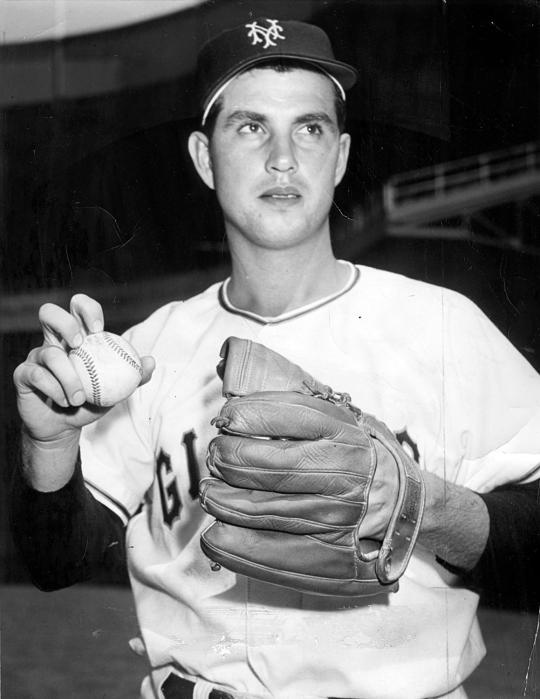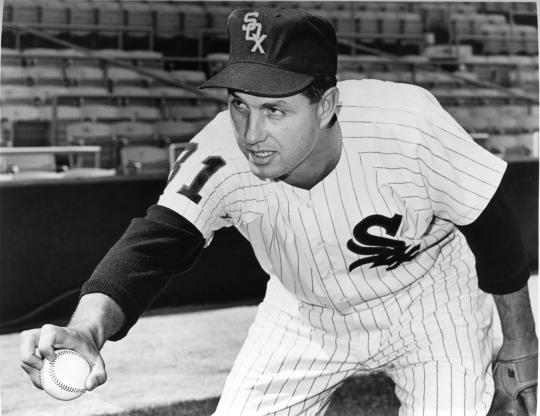- Home
- Our Stories
- Wilhelm opened Cooperstown doors for relief pitchers
Wilhelm opened Cooperstown doors for relief pitchers
Sixteen years after the save officially became a Major League Baseball statistic, relief pitchers earned their place in Cooperstown.
Pitcher Hoyt Wilhelm and left fielder Lou Brock were elected to the Baseball Hall of Fame by the Baseball Writers' Association of America on Jan. 7, 1985. For Brock – owner of 3,023 hits and then-record 938 stolen bases – election was expected and delivered on his first time on the ballot. For Wilhelm, however, it marked the end of an odyssey and the beginning of recognition for relievers.
Wilhelm broke into the big leagues in 1952 as a 29-year-old rookie with the New York Giants. His magical knuckleball produced 15 wins in 18 decisions, earning him fourth place in the National League Most Valuable Player Award voting and second in the NL Rookie of the Year race. Wilhelm was named to the first of his eight All-Star Games in 1953, then went 12-4 during the Giants' World Series-winning season of 1954.
Hoyt Wilhelm debuted with the New York Giants at age 29 in 1952 and helped the Giants win the World Series two years later. Wilhelm used his knuckleball to pitch for nine teams during a career that lasted until just days short of his 50th birthday. (National Baseball Hall of Fame and Museum)
Unofficially, Wilhelm had 33 saves those first three seasons – unofficially because the save did not become an official statistic until 1969. But Wilhelm had already established himself as the game's premier reliever by the mid-1950s, and – excepting a stint as a starter from 1958-60 – he was well on his way to redefining the role of the relief pitcher even as he approached his 40th birthday.
Wilhelm finished his career after the 1972 season with a 143-122 record and 228 saves. He appeared in 1,070 games, becoming the first pitcher to reach the 1,000-game plateau, and his average of 7.01 hits per nine innings ranks ninth all time.
Wilhelm recorded 129 of his saves (57 percent) and appeared in 494 of his games (46 percent) in the nine seasons after he turned 40.
Over 21 seasons with the Giants, Cardinals, Indians, Orioles, White Sox, Angels, Braves, Cubs and Dodgers, Wilhelm posted a 2.52 earned-run average.
He became eligible for the BBWAA Hall of Fame ballot for the first time in 1978 and steadily gained support until he was elected in his eighth year on the ballot in 1985 with 83.8 percent of the vote. He was the first pitcher who spent the majority of his career as a reliever to be elected to the Hall of Fame.
Wilhelm passed away on Aug. 23, 2002.
Craig Muder is the director of communications for the National Baseball Hall of Fame and Museum
Related Stories
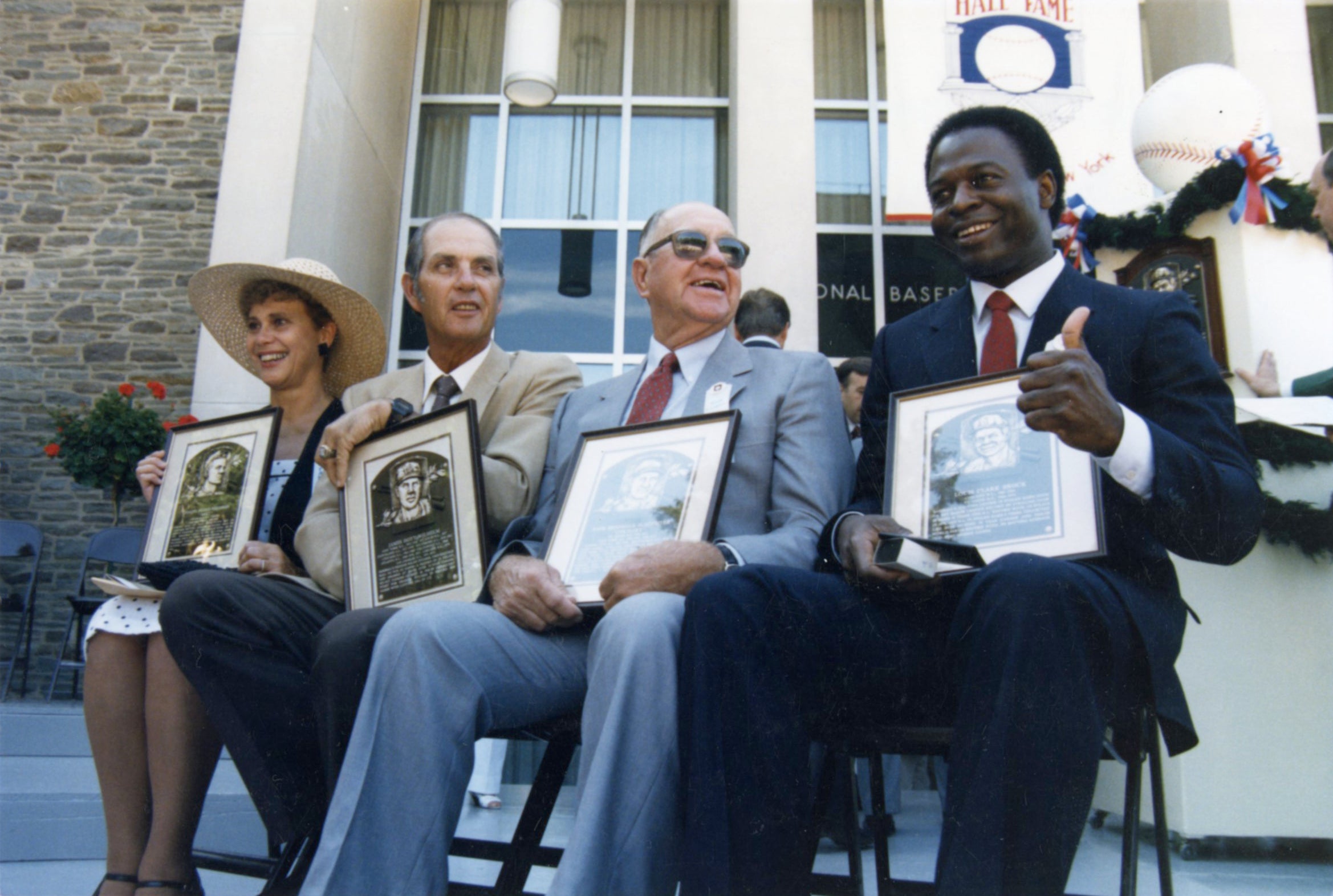
Lou Brock and Hoyt Wilhelm elected to the Hall of Fame
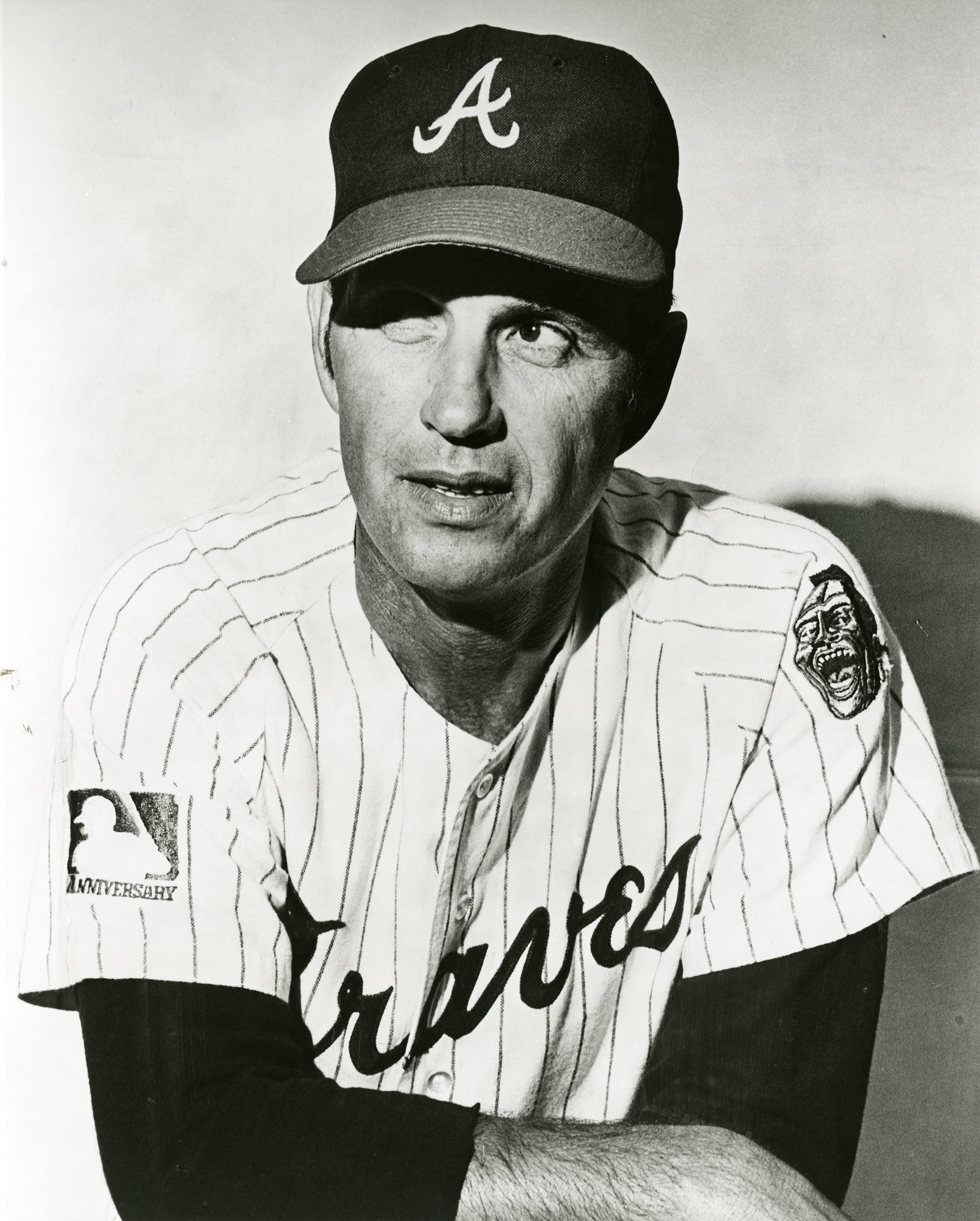
Cubs trade Hoyt Wilhelm to Braves for Hal Breeden
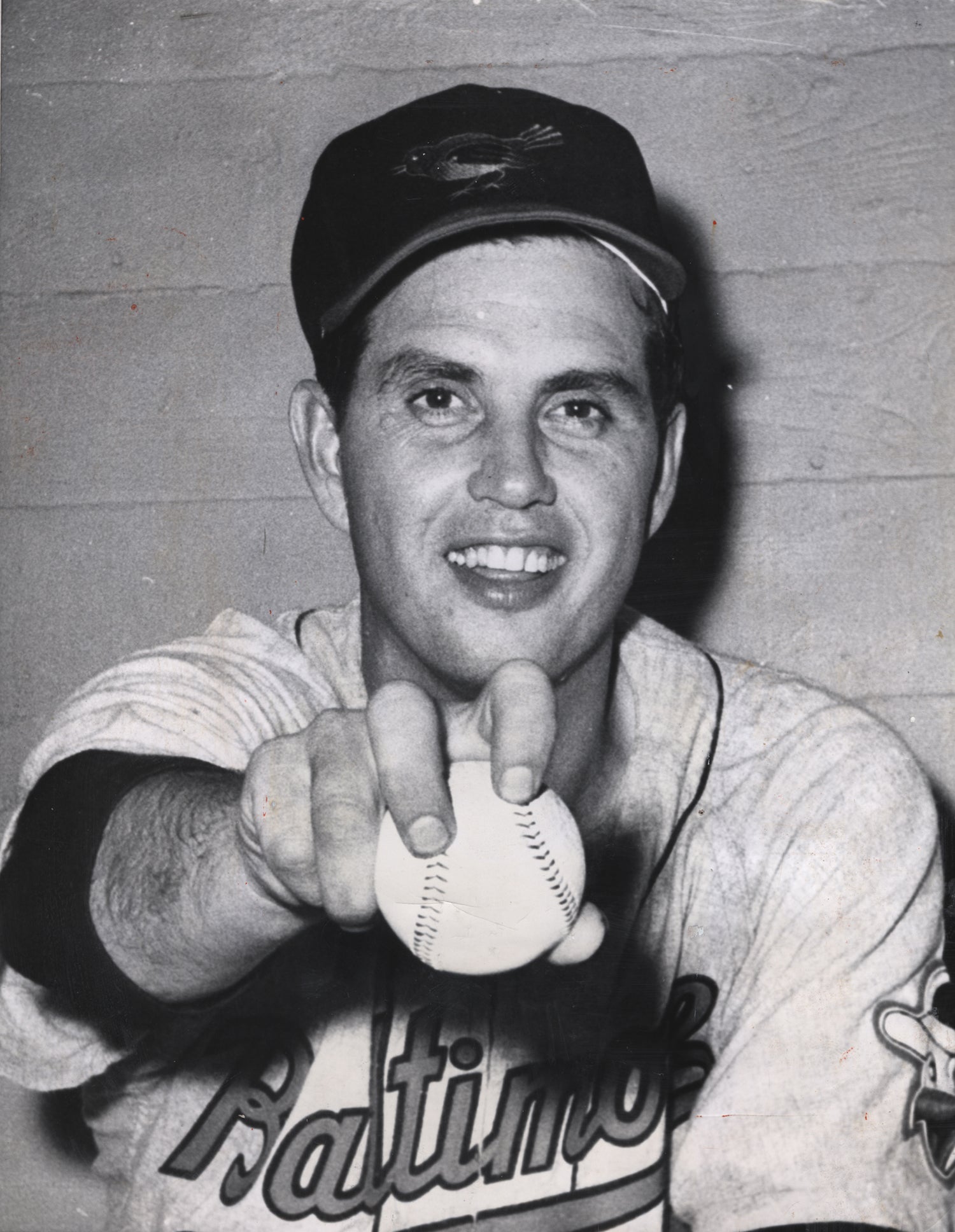
Hoyt Wilhelm pitches no-hitter vs. Yankees
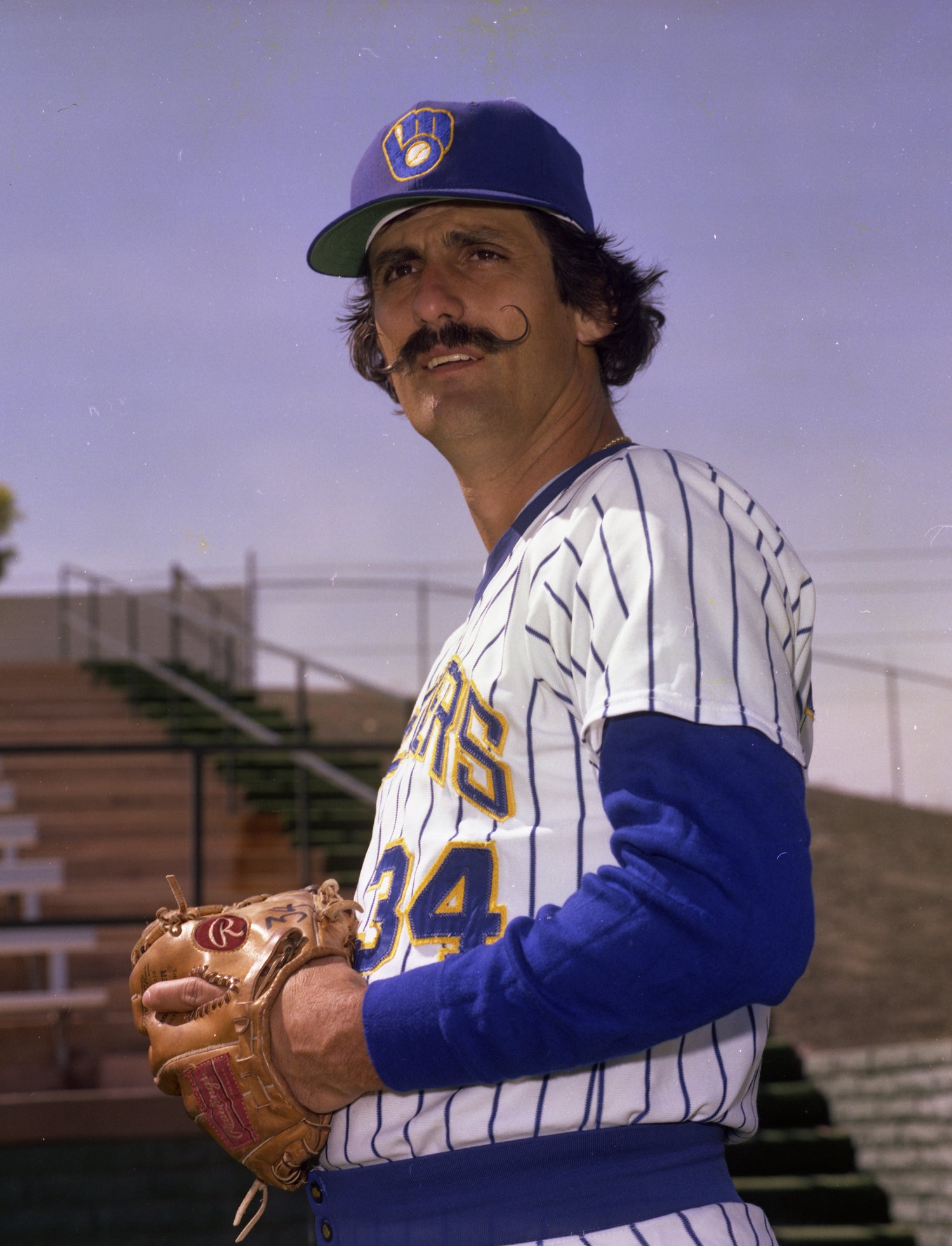
Rollie Fingers becomes the first pitcher to record 300 saves

Lou Brock and Hoyt Wilhelm elected to the Hall of Fame

Cubs trade Hoyt Wilhelm to Braves for Hal Breeden

Hoyt Wilhelm pitches no-hitter vs. Yankees


